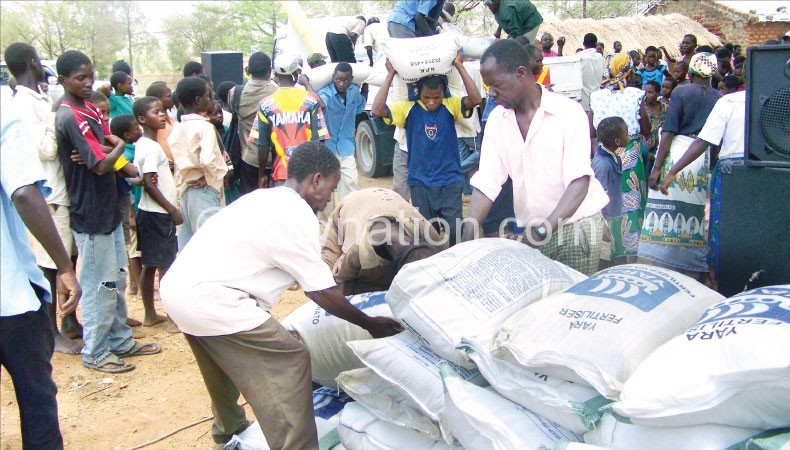‘Don’t scrap Fisp, improve it’
Critics of the Farm Input Subsidy Programme (Fisp) want the subsidy scrapped off all together because it’s failing to achieve its goal of reducing hunger at household and national level. However, a local Think tank, Link for Citizen Empowerment and Development thinks otherwise. Its country director Japhter Mwanza wants government to be innovative with Fisp by improving it. He speaks to FATSANI GUNYA on how Fisp can be improved: Excerpts
Your organisation is pushing for innovations to improve Fisp, what are your propositions?
Our suggestions are on all national social protection programmes. We want government to recast the Fisp and Public Works programme (PWP) and link them to the School Feeding Programme. Firstly, we look at the Fisp as a social protection programme that has not served its purpose very well. We feel that this needs to be re-routed to the education sector to provide sustainability to the School feeding programme. Secondly, the School Feeding Programme needs to take the home grown approach where the community is at the centre of food production, management and storage. Thirdly, the PWP has been used mainly to rehabilitate roads. I think we have done enough of roads, some of the labour used in the PWP can be channelled to the community gardens where people will work to produce food to support the School Feeding Programme at the same wage rate as in PWP.
But reports show that Fisp has let down Malawians, why not scrap it off?
The Fisp is a big failure from a food security perspective because, among other things, there is a lot of wastage of inputs through service to appease political patronages, pure theft and pilferage of coupons and other underhand deals. There is also redistribution by local leaders in the villages such that the two bags of fertiliser are sometimes shared amoung three to four people. The programme is a waste based on the measure of impact by various studies, the conduct of beneficiaries as some sell the inputs and the methodology used in coming up with the country’s annual crop estimates which does not single out Fisp as the contributing factor, among others. So, that brings us to the question: why allocating funds for Fisp and at the same time provide humanitarian food to the same beneficiaries at the end? It is common knowledge that we are no better now than we were in 2005 when this programme started. Therefore, the initiative needs some radical changes as it currently looks more of a social programme than an empowerment one.
However, we do not feel the Fisp has to be completely scraped off today; it still has potential to help solve problems we face in the education sector. Firstly, it can contribute to sustainability of the school feeding programme. Secondly, some portion of Fisp funds can be allocated to a private organisation that can grow crops to supply the universities and help reduce the high fees which are beyond the grasp of many Malawians. I have in mind Illovo Sugar (Malawi) Limited, which has great irrigation technical know- how to enter into a public-private-partnership with government on this.
We are also advocating for a change in focus as regards the target groups. The youth are better placed to help boost productivity unlike the ‘vulnerable’ currently earmarked for the same like the aged, the orphaned and the sick.
Take us through the modus operandus of your proposed points of action of linking the national social protection schemes?
The community will split its PWP beneficiaries into farming and infrastructure groups. The farming group will work in phases in a community garden provided by a chief or hired from within the community. They will work in phases from land clearing, making ridges, planting etc up to harvesting. These crops will be stored at the school and used to provide meals to primary schools and secondary schools. Lunch and breakfast can be provided. This will reduce the burden of households feeding their children by two-thirds which is a great economic benefit to the family. The people who work also benefit from a wage. The gardens can also be used as centers of agriculture technology dissemination like the Demonstration Plots of old.
Malawi is largely an agricultural economy. How will these changes you are advocating for going to help boost the sector at large and livelihoods in particular?
The initiative will help boost the country’s food production because already, young people are over half our population. It means the food security burden on the family is reduced. The families can also receive extension services through these gardens and this will improve technology adoption as well as revamp our dead extension system.





